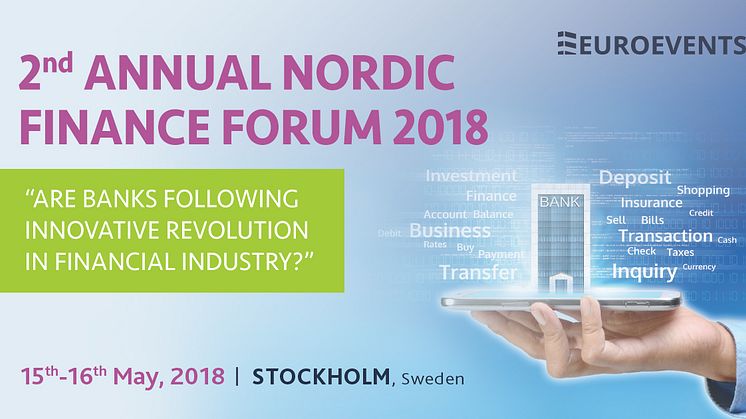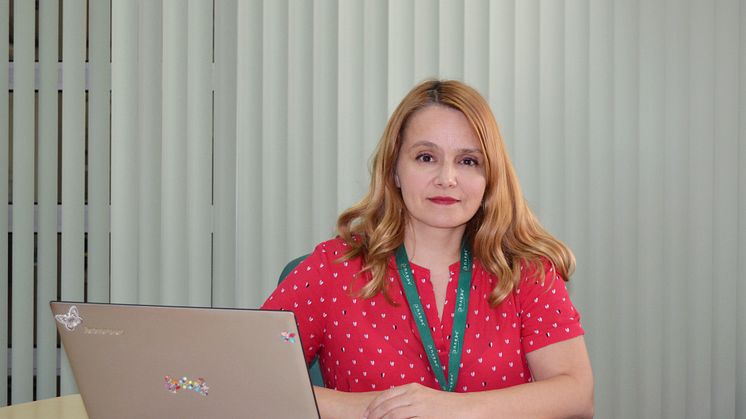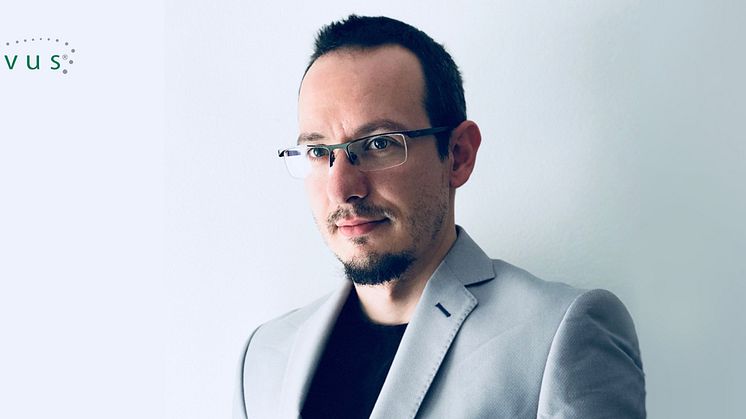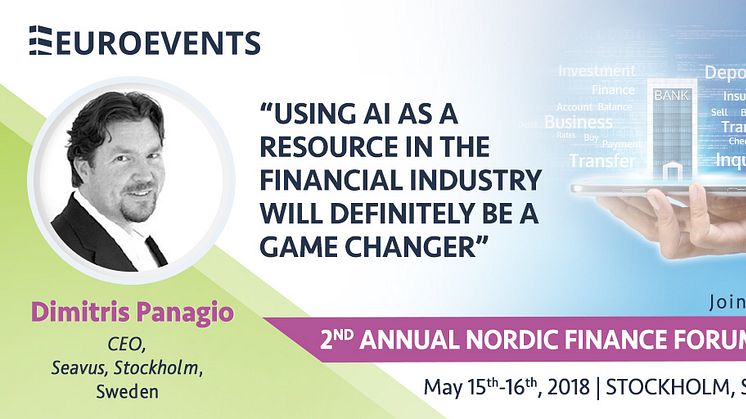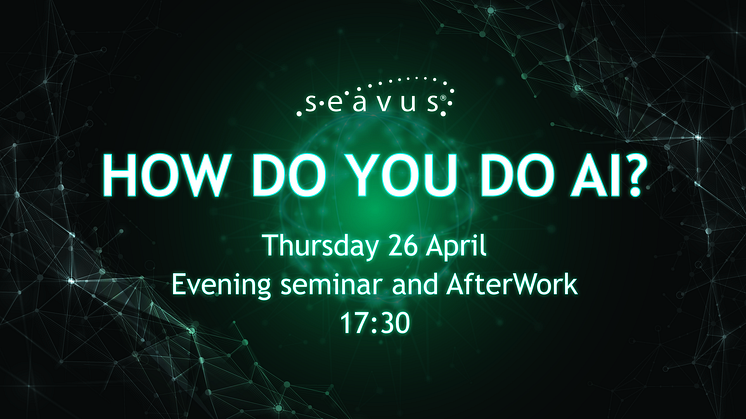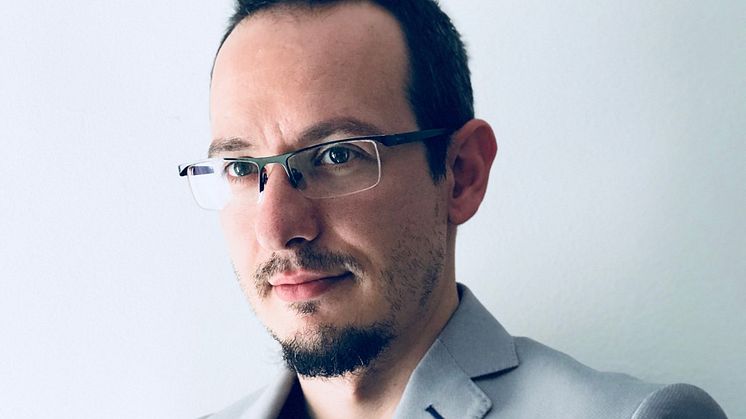
Blogginlägg -
"Innovative Synergy – when technology meets new regulations" - Interview with Miroslav Stojmanovski.
Miroslav Stojmanovski from Seavus is one of the speakers at the 2nd Nordic Finance Forum and he will be talking about “Innovative Synergy – when technology meets new regulations”. In his elaboration he will touch upon various aspects, among which: PSD2, TPP passport, payment chatbots and other hot topics. This interview is an exclusive opportunity to get a glimpse at what he foresees during the finance revolution.
PSD2 has come into force and has been implemented by January 13. What are the challenges of PSD2 implementation?
The greatest problem with PSD2 is that it lacks standardization, but the good news is that banks have made their APIs public so all third party providers can now make new APIs. The challenge here is that each bank would end up having their own API. Some of them will choose Open Banking which entails giving up more personal data, whereas other banks will stick to compliance and only provide the bare minimum of information necessary for a certain system.
Those banks that have a fast approach will have to overcome the challenge to collect data from other banks that do not have the same set of information. Open banking is the whole set of information that a bank has at disposal, and PSD2 is a ‘chess move’ in EU that will open up the market to third party providers. Of course, the new customized, both open and premium APIs will be made by the largest banks.
What does this mean for the collaboration between Banks and FinTech companies? Are Banks open to collaboration or, more importantly – do they follow the finance revolution?
At the beginning, PSD2 provoked an antagonistic relationship between Banks and FinTech companies. This was because the FinTechs could not collect enough data to develop a product due to the strict bank policies with which Banks kept data that was not theirs. On the other hand, banks have regular payments to keep this data in separate servers. Fortunately, with time, they saw that the more data they provide to FinTech companies – the more they get in return.
I think that most banks follow the finance revolution. Have a look at Nordea, for example, which is at the front of the Nordic market. The whole process of PSD2 implementation was supposed to be a bit faster, but I understand that big changes are often met with reservation and hesitancy. Especially when it comes to sharing sensitive information that banks have. The good thing is, all parties realized that PSD2 is a win-win solution.
What about TPP passports? Will this change the game of world data?
TPP certificates is a work in progress. It still has not been standardized in the EU, but once it gets it will drastically relive the whole process of information flow. If EU is ready to apply cross-border banking, then they would surely have to come up with a standardized solution that would be implemented in all EU countries. We will witness next generation of services focused on communication with the TPP CA systems to check whether they could provide a certain service or not. There is still much time, but I expect that some FinTech companies will embrace this opportunity for innovation since the first TPP eIDAS draft is finalized in March. Once it gets implemented, it will take over EU in no time because it is the aftermath of PSD2.
The synergy of technology has brought up several innovative products, one of them being payment chatbots. How will chatbots meet the new regulations?
Chatbots are not a novelty. It is just that only few companies could afford them, but they have now become a commodity for smaller companies too. The milestone is that the whole machine learning process and AI has matured and can now be used in the banking sector. Not only will chatbots be used for customer support, but also as a personal assistant that will take care of all payment services. AI is mature enough for this because most banking operations are repetitive. A possible area that needs improvement during the delivering of these operations is the speech to text software. A simple resolution for this would be spelling, which is a cumbersome process itself. But still there are plenty of other applications that can benefit from AI and ML at this stage – so there are many opportunities for integration and collaboration with other applications that would ease the use of chatbots.
The biggest challenge, however, is how to comply AI and chatbots with the General Data Protection Regulation (GDPR). The problem that arises is that we cannot know where our data will end up, since even banks may not know where the server that collects their data is – it may be in a non-EU country where GDPR is not on force. Still, if EU banks offer this service then they must comply with GDPR and this will be a guarantee for data protection.
Finally, who started the finance revolution: technology or legislation?
This is like solving the chicken or the egg dilemma: what came first? It really works both ways – both technologies and legislation pulled the trigger. On the long run, we might say that FinTech companies made the first step and took initiatives for the creation of this legislation. But then, on the other hand, banking systems are expensive and banks would not invest in a system that will only work for a few years. From this viewpoint, I understand their skepticism and rigidity when it comes to implementing a new system, and unless legislation shakes things, banks will stay inert to changes due to processes policies and expensive information systems. In contrast, FinTechs are technology drivers because they do not have the burden of legacy software, but always approach with state of the art technologies, so they can guarantee a state-of-the-art system that would be a long-term solution. So in the end, we can see that this open market provides an equal opportunity for everyone to place their product, which is a win-win solution to all parties concerned.
Register to the conference here: http://www.nordicfinanceforum.com/

